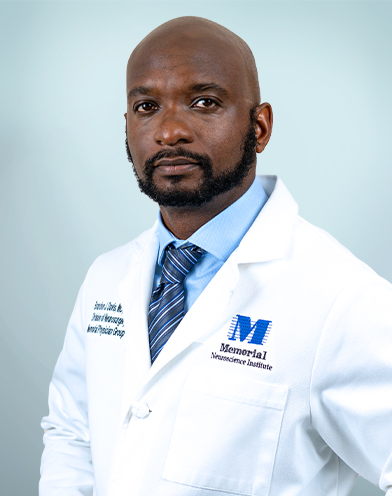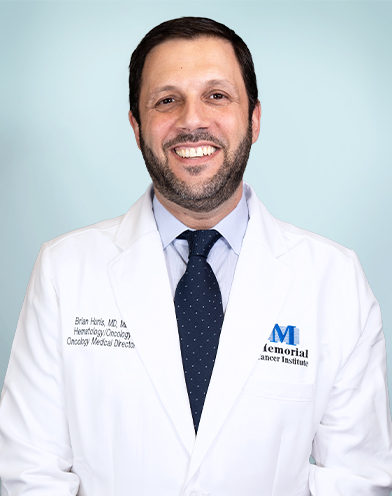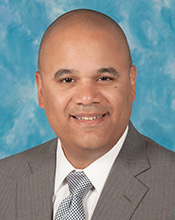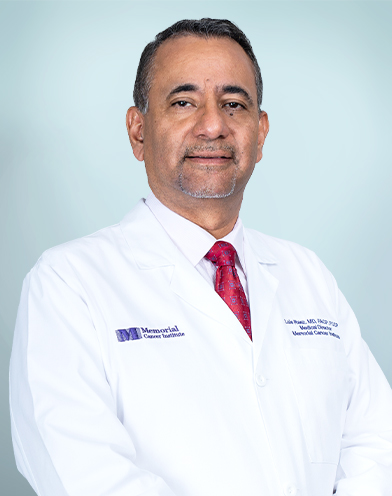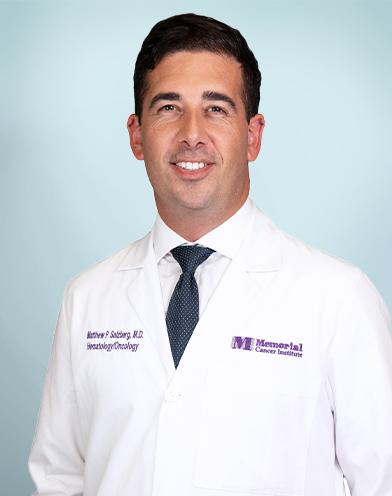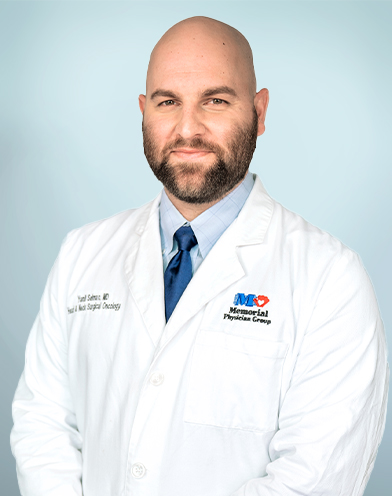Head and Neck Cancer
Our comprehensive treatment for head and neck cancers helps restore your appearance and function.
Head and neck cancer is a particularly challenging disease that can significantly affect your ability to function. It can alter your appearance, speech and ability to chew and swallow. It also can take a toll on your mental health and quality of life.
You need a team that diagnoses the condition accurately and develops a comprehensive treatment plan. But you also need support as you recover and navigate life with this complex disease.
Connect with a patient access center. We can help you find the care you need.
954-265-4325Head and Neck Cancer Types
Head and neck cancer occurs when cells grow out of control. This can occur in many places throughout your head and neck:
- Oral cavities, such as your lips, tongue, jaw, gums, cheeks and mouth
- Pharynx (throat)
- Larynx (voice box)
- Nasal cavity (nose) and sinuses
- Salivary glands, tiny structures that produce saliva
Diagnosing Head and Neck Cancer
There are many types of tests for diagnosing head and neck cancer. We recommend tests based on your symptoms, the type of cancer suspected and the area involved. We offer diagnostic tests for head and neck cancer in one place, from traditional methods to advanced testing technology.
Tests for Diagnosing Head and Neck Cancer may Include:
Biomarker testing is a cutting-edge diagnostic option. It tests a portion of tissue to determine whether it has unique characteristics (biomarkers) that indicate disease. Biomarkers can also provide information about what kind of treatments the cancer may respond to.
We take a small fluid or tissue sample and examine it under a microscope. Our pathologists can determine whether the cells are abnormal.
A blood test can detect substances circulating in your system that indicate certain types of head and neck cancer.
An endoscope is a thin tube equipped with a tiny light and camera. We thread the tube through your nose or mouth to explore areas of suspected disease. Depending on the area being examined, you might hear these tests called pharyngoscopy, nasopharyngoscopy or laryngoscopy.
We use advanced imaging to take pictures of the complex structures in your head and neck and to assess how you swallow. Imaging options include X-ray, ultrasound, MRI, CT scan, and positron emission tomography (PET) scan, depending on your needs.
Connect with a patient access center. We can help you find the care you need.
954-265-4325Head and Neck Cancer Treatment
Based on test results, your team develops a detailed, individualized treatment plan. The goal is to remove or destroy as much cancer as possible but preserve and protect surrounding structures.
Your care plan might involve one or more of the following treatments, all available at Memorial:
- Chemotherapy: Chemotherapy medications can be delivered orally or intravenously. The drugs circulate in your bloodstream and destroy cancer cells.
- Immunotherapy: These innovative medications activate your immune system to attack cancer cells.
- Radiation therapy: Radiation delivers beams of energy that destroy cancer cells and shrink tumors. It may also be used after surgery to prevent the cancer from returning.
- Surgery: The goal of surgery is to remove the tumor and often a small amount of surrounding tissue.
- Targeted therapy: This approach involves taking drugs that destroy cancer cells or slow their growth by attacking certain genes in the cells.
Some cancer treatments can cause harmful side effects. The Memorial team has extensive experience with head and neck cancer treatments, so we can identify side effects and help you as soon as possible.
If you need surgery, we plan an approach that is as minimally invasive as possible. This protects surrounding tissues and speeds up recovery. For example, transoral robotic surgery (TORS) uses computer navigation to guide tools into the mouth and throat, avoiding large incisions.
In addition, we consult with our internal network of experts to plan your treatment. For example, we collaborate with our neurosurgical colleagues to remove skull base tumors. Together, the team ensures that surgery is as safe and effective as possible.
Recovery from Head and Neck Cancer
Head and neck cancer can affect your appearance, your ability to communicate and even your ability to eat and drink. Memorial’s supportive care team is here for you as you recover and beyond.
If you are having trouble communicating, swallowing, or performing everyday tasks, our speech-language pathologists and occupational therapists can help you regain function. If surgery has changed your appearance, our reconstructive surgeons and oral surgeons can help. They can expertly rebuild or replace bone, muscle, skin and teeth.
Part of your recovery is a personalized survivorship care plan. The document outlines checkups and follow-up tests you need to ensure the cancer doesn’t return. It also lists the potential prolonged effects of your treatments and recommendations for long-term health.
Head and Neck Cancer Care: Why Choose Memorial Cancer Institute?
When you come to Memorial for head and neck cancer care, you’ll find:
- A team approach to cancer care: You receive care from an entire team of experts, including medical oncologists, radiation oncologists, specialty surgeons, dentists, pathologists, palliative care physicians, reconstructive surgeons and pain management specialists. Our doctors discuss your care as a team before, during and after treatment. This ensures your care plan is comprehensive and stays on track. Meet our team.
- Trusted experts: Our oncologists and surgeons are board certified and fellowship trained to diagnose and treat head and neck cancer. And our nurses are certified by the Oncology Nursing Society. This makes them uniquely qualified to offer the most effective care and understand the challenges you face.
- Care for the whole person: Head and neck cancer can significantly affect your ability to speak, chew and swallow. It can also impact your mental health. Your team includes a variety of support staff to help you prepare for and recover from treatment, such as integrative medicine specialists, psychologists, social workers, nutritionists, speech-swallow therapists, occupational therapists and financial navigators.
- Recognized excellence: Memorial Cancer Institute is one of five Cancer Centers of Excellence designated by the state of Florida. We are also designated as an oncology medical home by the American Society of Clinical Oncology.
- Clinical research: We conduct clinical trials to advance the diagnosis and treatment of head and neck cancer. This means our patients can access innovative treatment options not available everywhere.




